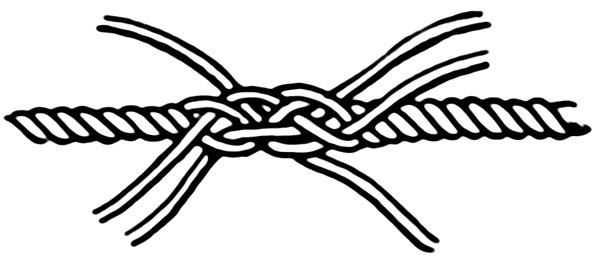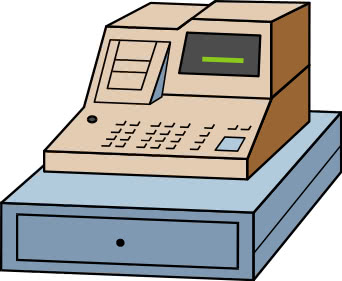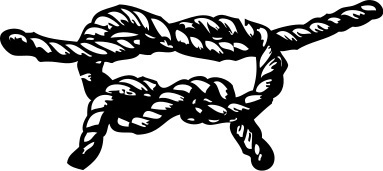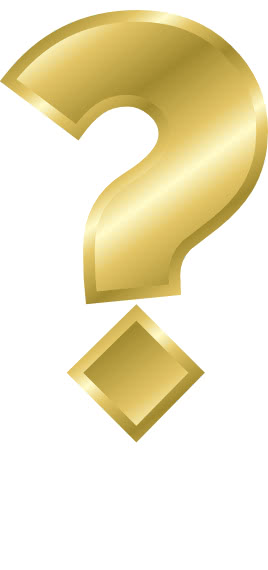 Let’s get this story finished and move on! I don’t mean to sound impatient, but that’s my first reaction on reading the latest reports about Alibaba’s endless saga in its quest to buy out the 40 percent stake in itself held by Yahoo (Nasdaq: YHOO). I realize this deal involves a big amount of money, possibly as much as $10 billion, but that said, it’s also quite straightforward since the 2 companies have essentially no shared assets and thus literally all that’s needed is agreement on a price and then for Alibaba to find the financing. According to the latest reports, Alibaba and Yahoo have finally entered into serious discussions, following Yahoo’s naming of a new CEO last month, and the 2 sides fully expect to reach an agreement by mid March. (Chinese article) I personally can’t wait until they announce a deal, as it will finally mark the end of a major corporate marriage that started with lots of promise, only to see things sour and end with a divorce that has taken way too long to reach. I’m probably being a little unfair here, as a final deal was unlikely to happen until Yahoo finally named a new CEO to replace Carol Bartz, who was a major source of friction between the 2 companies and whose firing last year finally set in process that will finally see Alibaba get its long-sought divorce. From Alibaba’s perspective, the sooner the settlement comes the better, as the divorce has become way too big a distraction as the company hopped from one crisis to the next at many of its core businesses last year, including its oldest B2B Alibaba.com (HKEx: 1688) site and its promising Taobao Mall, both of which were rocked by scandals that they are still recovering from. For its part, Yahoo also needs to put this story behind it and get to work trying to resuscitate its struggling search business, once a pioneer in the sector but which later lost its way as global giant Google (Nasdaq: GOOG) stole most of its business. A final settlement will not only end the hostilities, but will also leave Yahoo with a nice pile of cash to use to rebuild its business. It will also leave Alibaba with a pile of shares it can sell to more passive investors who are interested in its strong growth potential without wanting a strong say in its bigger management decisions. All that said, my final word to both sides, at least for now is: Let’s really try to end this saga by the mid-March deadline. Believe me, you won’t be the only ones celebrating!
Let’s get this story finished and move on! I don’t mean to sound impatient, but that’s my first reaction on reading the latest reports about Alibaba’s endless saga in its quest to buy out the 40 percent stake in itself held by Yahoo (Nasdaq: YHOO). I realize this deal involves a big amount of money, possibly as much as $10 billion, but that said, it’s also quite straightforward since the 2 companies have essentially no shared assets and thus literally all that’s needed is agreement on a price and then for Alibaba to find the financing. According to the latest reports, Alibaba and Yahoo have finally entered into serious discussions, following Yahoo’s naming of a new CEO last month, and the 2 sides fully expect to reach an agreement by mid March. (Chinese article) I personally can’t wait until they announce a deal, as it will finally mark the end of a major corporate marriage that started with lots of promise, only to see things sour and end with a divorce that has taken way too long to reach. I’m probably being a little unfair here, as a final deal was unlikely to happen until Yahoo finally named a new CEO to replace Carol Bartz, who was a major source of friction between the 2 companies and whose firing last year finally set in process that will finally see Alibaba get its long-sought divorce. From Alibaba’s perspective, the sooner the settlement comes the better, as the divorce has become way too big a distraction as the company hopped from one crisis to the next at many of its core businesses last year, including its oldest B2B Alibaba.com (HKEx: 1688) site and its promising Taobao Mall, both of which were rocked by scandals that they are still recovering from. For its part, Yahoo also needs to put this story behind it and get to work trying to resuscitate its struggling search business, once a pioneer in the sector but which later lost its way as global giant Google (Nasdaq: GOOG) stole most of its business. A final settlement will not only end the hostilities, but will also leave Yahoo with a nice pile of cash to use to rebuild its business. It will also leave Alibaba with a pile of shares it can sell to more passive investors who are interested in its strong growth potential without wanting a strong say in its bigger management decisions. All that said, my final word to both sides, at least for now is: Let’s really try to end this saga by the mid-March deadline. Believe me, you won’t be the only ones celebrating!
Bottom line: The world will celebrate with Alibaba and Yahoo when they finally finish their divorce, ending an unhappy chapter for both companies that dragged on way too long.
Related postings 相关文章:
◙ Yahoo, Alibaba Dance Nears Finale 雅虎应与阿里巴巴撇清干系

 A half year after spinning off its Weibo unit with an aim to earning profits from the wildly popular microblogging service, Sina (Nasdaq: SINA) is taking the first step to generating significant new revenues from the business by rolling out a new premium paid service. The strategy is certainly necessary if Sina ever wants to earn a profit from Weibo, and I even like the fact that it’s charging a very modest fee for the service, at least initially, which should help attract customers. But I’m still quite skeptical that the strategy will actually work, as it’s always hard to get people to pay for something they’ve grown accustomed to getting for free. Let’s backtrack a moment and look at the details of this latest development, which has Sina rolling out a service that will allow Weibo users to get the new premium service for the modest fee of 5 yuan a month or 50 yuan a year, translating to less than $1 per month. (
A half year after spinning off its Weibo unit with an aim to earning profits from the wildly popular microblogging service, Sina (Nasdaq: SINA) is taking the first step to generating significant new revenues from the business by rolling out a new premium paid service. The strategy is certainly necessary if Sina ever wants to earn a profit from Weibo, and I even like the fact that it’s charging a very modest fee for the service, at least initially, which should help attract customers. But I’m still quite skeptical that the strategy will actually work, as it’s always hard to get people to pay for something they’ve grown accustomed to getting for free. Let’s backtrack a moment and look at the details of this latest development, which has Sina rolling out a service that will allow Weibo users to get the new premium service for the modest fee of 5 yuan a month or 50 yuan a year, translating to less than $1 per month. ( If Yahoo (Nasdaq: YHOO) was looking for a way to tell the world that its troubled relationship with Chinese e-commerce giant Alibaba Group was nearing an end, then the just-announced resignation of Yahoo co-founder Jerry Yang from all his posts at both companies looks like the perfect and very appropriate signal. Yang’s resignation means he will relinquish his positions as a director on the boards of both Yahoo and Alibaba, marking a quiet end to a stormy chapter in both companies’ history. (
If Yahoo (Nasdaq: YHOO) was looking for a way to tell the world that its troubled relationship with Chinese e-commerce giant Alibaba Group was nearing an end, then the just-announced resignation of Yahoo co-founder Jerry Yang from all his posts at both companies looks like the perfect and very appropriate signal. Yang’s resignation means he will relinquish his positions as a director on the boards of both Yahoo and Alibaba, marking a quiet end to a stormy chapter in both companies’ history. ( The e-commerce world is buzzing this morning about the new cat in town, a website called Tianmao, translating to “Sky Cat,” which is the new Internet domain where Alibaba Group’s industry leading Taobao Mall will set up its new shop. (
The e-commerce world is buzzing this morning about the new cat in town, a website called Tianmao, translating to “Sky Cat,” which is the new Internet domain where Alibaba Group’s industry leading Taobao Mall will set up its new shop. ( I normally don’t like to write about the same deal twice in one week, but in this case things suddenly seem to be moving quickly in the story of faded Internet giant Yahoo (Nasdaq: YHOO), which may soon dispose of some or all of its 40 percent stake in Chinese e-commerce leader Alibaba as well as its holdings in Yahoo Japan (Tokyo: 4689). Reports in the foreign media are slightly conflicting, but what’s clear is that the Yahoo board was set to meet on Thursday to discuss a plan that would see it sell either 25 percent of its stake in Alibaba, or perhaps the entire 40 percent stake, under a deal that would be worth around $17 billion. (
I normally don’t like to write about the same deal twice in one week, but in this case things suddenly seem to be moving quickly in the story of faded Internet giant Yahoo (Nasdaq: YHOO), which may soon dispose of some or all of its 40 percent stake in Chinese e-commerce leader Alibaba as well as its holdings in Yahoo Japan (Tokyo: 4689). Reports in the foreign media are slightly conflicting, but what’s clear is that the Yahoo board was set to meet on Thursday to discuss a plan that would see it sell either 25 percent of its stake in Alibaba, or perhaps the entire 40 percent stake, under a deal that would be worth around $17 billion. ( It seems quite appropriate that 2011 is ending with news that Internet search leader Baidu (Nasdaq: BIDU), which for years symbolized rampant disregard for copyrights on China’s unruly Internet, has been removed from a US list of “notorious markets” for piracy, capping a year that saw great progress in intellectual property protection. (
It seems quite appropriate that 2011 is ending with news that Internet search leader Baidu (Nasdaq: BIDU), which for years symbolized rampant disregard for copyrights on China’s unruly Internet, has been removed from a US list of “notorious markets” for piracy, capping a year that saw great progress in intellectual property protection. ( New figures coming out of a foreign media report are starting to shed some light on the value Alibaba, China’s biggest e-commerce group, as it moves forward with a deal that would see it lead a group to buy out faded Internet giant Yahoo (Nasdaq: YHOO) and then personally buy back the 40 percent of itself that Yahoo current holds. The interesting element to all this is that based on the latest numbers, Alibaba’s valuation is likely to come in around $20 billion, not bad for a company whose only listed unit, B2B specialist Alibaba.com (HKEx: 1688) is only worth about $5 billion, but also a far cry from the $32 billion that some would like others to believe. According to the latest report, Alibaba is close to assembling a $4 billion loan that it would use to buy back the 40 percent of itself held by Yahoo after the bigger Yahoo buyout, which itself would be valued at around $25 billion. (
New figures coming out of a foreign media report are starting to shed some light on the value Alibaba, China’s biggest e-commerce group, as it moves forward with a deal that would see it lead a group to buy out faded Internet giant Yahoo (Nasdaq: YHOO) and then personally buy back the 40 percent of itself that Yahoo current holds. The interesting element to all this is that based on the latest numbers, Alibaba’s valuation is likely to come in around $20 billion, not bad for a company whose only listed unit, B2B specialist Alibaba.com (HKEx: 1688) is only worth about $5 billion, but also a far cry from the $32 billion that some would like others to believe. According to the latest report, Alibaba is close to assembling a $4 billion loan that it would use to buy back the 40 percent of itself held by Yahoo after the bigger Yahoo buyout, which itself would be valued at around $25 billion. (